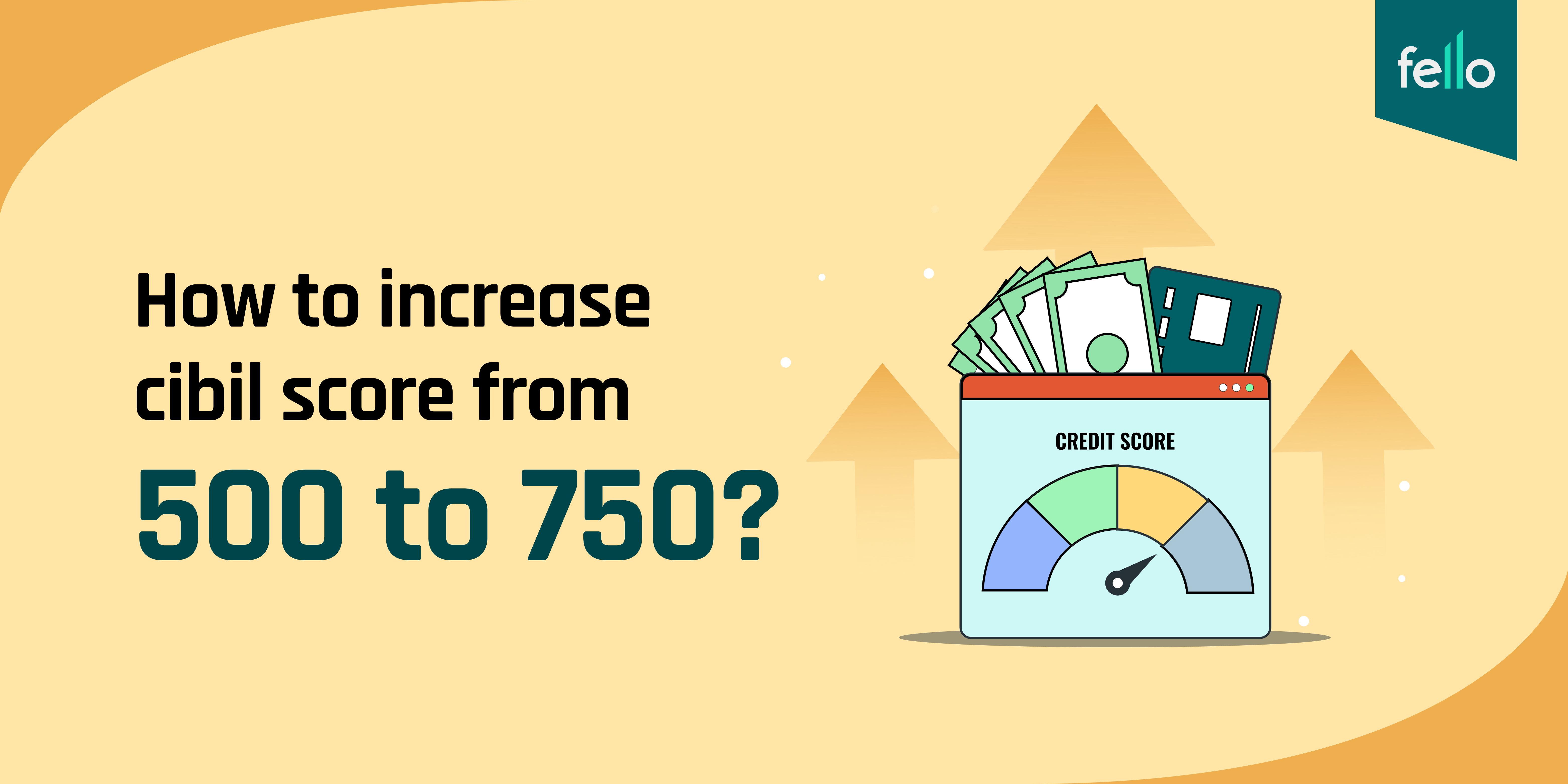Your CIBIL score is a three-digit number that determines your creditworthiness. A low score of 500 can limit your financial opportunities, making it difficult to secure loans or credit cards. However, raising your score to 750 is achievable with the right strategies. In blog, we’ll discuss how to increase your CIBIL score from 500 to 750 by focusing on key actions and addressing the factors that affect your credit profile.
Why Is a High CIBIL Score Important?
A high CIBIL score improves your chances of loan approval, reduces interest rates, and even helps you negotiate better terms with lenders. It signifies financial discipline and responsible credit behavior, making lenders more confident about your repayment ability.
If you’re applying for a loan, a strong score is crucial. To understand its role in home loans, check out How Much CIBIL Score Is Required for a Home Loan?.
Factors That Affect Your CIBIL Score
Before diving into how to improve your score, it’s essential to understand the factors influencing it:
- Payment History (35%): Timely payments significantly impact your score.
- Credit Utilization Ratio (30%): Using more than 30% of your credit limit can lower your score.
- Length of Credit History (15%): Longer credit histories positively influence your score.
- Credit Mix (10%): A balance of secured and unsecured loans boosts your profile.
- New Credit Inquiries (10%): Frequent applications for loans or credit cards can hurt your score.
Related Read: What to Do When Your CIBIL Goes Down?
Steps to Increase Your CIBIL Score from 500 to 750
1. Pay Your Dues on Time
Your payment history accounts for 35% of your CIBIL score. Missing even a single EMI or credit card payment can harm your score. To improve:
- Set up reminders or enable auto-debit for bill payments.
- Clear overdue payments to reduce the impact of defaults.
2. Reduce Credit Utilization
A high credit utilization ratio signals financial stress to lenders. Aim to use less than 30% of your total credit limit. For example, if your credit limit is ₹1,00,000, keep your usage below ₹30,000.
Tips to Manage Credit Utilization:
- Request a credit limit increase to improve the ratio without reducing spending drastically.
- Pay off your credit card balance more frequently.
3. Avoid Multiple Credit Inquiries
Frequent loan or credit card applications result in hard inquiries, which can lower your score. Only apply for credit when absolutely necessary.
4. Check Your Credit Report for Errors
Errors in your credit report can unfairly lower your score. Obtain a free credit report and check for inaccuracies such as:
- Incorrect account details.
- Payments marked as overdue despite being cleared.
Dispute any discrepancies with CIBIL or the respective credit bureau. Learn How to Check Your CIBIL Score for Free for step-by-step instructions.
5. Maintain a Healthy Credit Mix
Having a mix of secured (e.g., home loans) and unsecured loans (e.g., credit cards) demonstrates responsible credit usage. Avoid relying solely on unsecured loans to improve your credit profile.
6. Avoid Closing Old Credit Accounts
The length of your credit history contributes to 15% of your CIBIL score. Keeping older accounts active positively affects your score. Instead of closing them, maintain minimal activity to keep them operational.
7. Opt for a Secured Credit Card
If your score is low, consider applying for a secured credit card against a fixed deposit. Use it responsibly to rebuild your credit history.
8. Settle Debts Strategically
If you have multiple loans, prioritize clearing high-interest debts first. This not only reduces financial strain but also positively impacts your CIBIL score.
How Long Does It Take to Improve a CIBIL Score?
Improving your score from 500 to 750 is a gradual process and can take anywhere between 6 to 12 months, depending on your financial discipline. Here’s a timeline:
- 1-3 Months: Address overdue payments and dispute errors in your credit report.
- 3-6 Months: Reduce credit utilization and avoid new inquiries.
- 6-12 Months: Maintain consistent repayment behavior and build a longer credit history.
Benefits of a High CIBIL Score
Once you reach a score of 750 or above, you can enjoy several benefits:
- Easier Loan Approvals: Lenders are more likely to approve your loan applications.
- Lower Interest Rates: A high score can help you negotiate better interest rates.
- Higher Credit Limits: Banks and credit card issuers may offer higher limits.
- Access to Premium Financial Products: Qualify for premium credit cards and loan products.
Related Read: How to Get a Personal Loan at Low Interest?
Common Mistakes to Avoid
- Ignoring Credit Report Errors: Failing to correct inaccuracies can prolong a low score.
- Overusing Credit Cards: High utilization can offset other positive efforts.
- Closing Old Accounts: Reduces the length of your credit history.
- Taking Too Many Loans: Signals credit hunger and lowers your score.
Conclusion
Improving your credit score might seem like a daunting task, but with consistent effort, you can raise your CIBIL score from 500 to 750. Focus on timely payments, managing credit utilization, and maintaining a healthy credit mix to achieve financial stability.
Remember, a strong CIBIL score is key to unlocking better financial opportunities, from securing loans to getting lower interest rates. Start today by checking your credit report and implementing these strategies. For more insights on credit improvement, explore What to Do When Your CIBIL Goes Down?.

